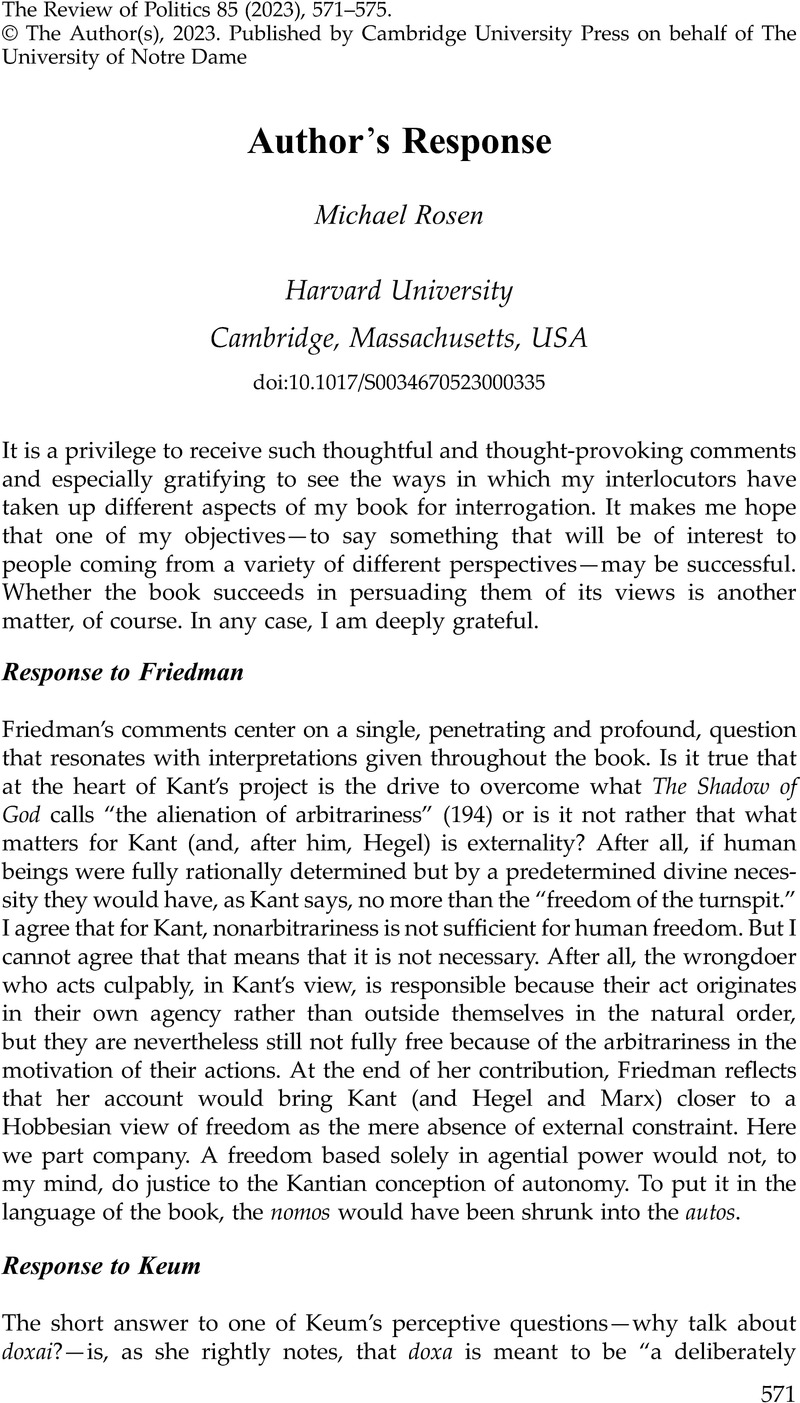No CrossRef data available.
Published online by Cambridge University Press: 14 August 2023

1 Rosen, Michael, On Voluntary Servitude: False Consciousness and the Theory of Ideology (Cambridge: Polity, 1996), chap. 8Google Scholar.
2 Taylor, Charles, Hegel (Cambridge: Cambridge University Press, 1975), 414CrossRefGoogle Scholar.
Please note a has been issued for this article.